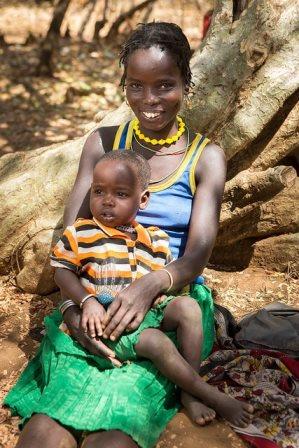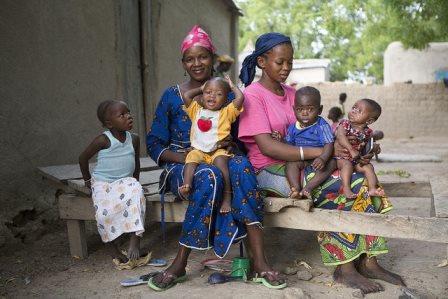By Elaine Ori, Canadian Red Cross volunteer
To mark International Development Week from February 5-11, 2017, we're sharing stories and updates about our work around the world.

The statistics are shocking; every day, up to 800 mothers will lose their lives from treatable conditions such as severe bleeding after childbirth, birthing-related infections, high blood pressure during pregnancy, and unsafe abortions. Every day as many as 18,000 children will lose their lives from preventable diseases such as malaria, diarrhoea, and pneumonia. It is a global crisis.
The Canadian Red Cross is committed to delivering community health care both at home and abroad. Collaborating with ministries of health, the Canadian Red Cross works to deliver life-saving care to support
mothers, newborns, and child health (MNCH) in vulnerable areas of the world.
Lending technical expertise, training, education, and services, the Canadian Red Cross is providing aid to mothers and children in 13 countries in Africa, Asia, and the Americas. With recent events, the Canadian Red Cross’ work is increasingly focused on crisis-affected areas. “The need is to focus on women and children in these fragile and conflict-affected settings,” says Patricia Strong, Canadian Red Cross Senior Advisor for Global Health Policy for the International Operations Team, “it’s quite complex.”
For many countries, health systems have been weakened through conflict, disaster and poverty. Often, facilities exist but lack medicines and trained, professional healthcare providers. Many more barriers exist, preventing women and their children from accessing proper care. “In crisis settings, where populations may be fleeing conflict, it may be impossible to monitor a patient’s progress: what works in a stable setting may not be appropriate, and we need to adapt.”
More than half of all the Canadian Red Cross’ MNCH care is delivered in conflict or fragile settings. This adds complexity to already delicate situations. Patricia explains, “Barriers to access can be cultural or economic, or may have to do with security of accessing treatment. In some cases, the barriers to access are related to women’s inequality… all those things combined with weak health systems and poverty are made even more challenging when there is armed conflict.”
Recent events have also demonstrated that deployed and local healthcare workers are themselves at risk where violations of the
International Humanitarian Law are common place. “Health facilities have been targeted in many crisis settings, endangering the lives of patients and health workers. With all of these challenges, when there are successes in these contexts – we celebrate them.”

Despite all this, Patricia remains positive. “We’re really trying to take a comprehensive approach to women’s and children’s health,” she says.
So much of the Canadian Red Cross’ current work involves teaching and training local people, and Patricia agrees this is a vital strategy in delivering care. “There are many more services that can be provided by lay people in communities. Our aid workers bring technical experience to support our partners, including the ministries of health, but working with people in the area is critical because they bring valuable local knowledge, speak the language, and understand the culture.”
MNCH progress continues to be achieved by harnessing the power of communities as well as strengthening partnerships and relationships with Red Cross and Red Crescent societies and ministries of health. As Canadians, there is also much we can do. “Learn. Be a global citizen,” Patricia says, “Understand. I think of moms in this context. They’ll walk for days at great risk to themselves to get treatment for a child with malaria or just to be vaccinated – they care very deeply for their children and they struggle for access to things that we take for granted. The most important thing people can do is to be informed about the world, and act accordingly.”